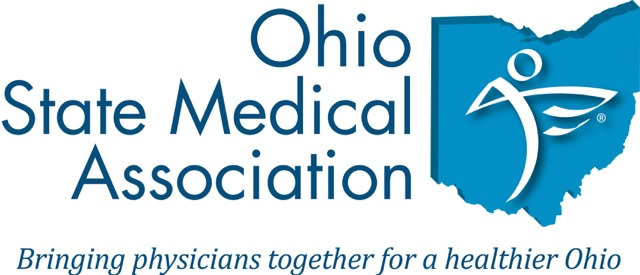Complete Story
12/16/2021
Telehealth Legislation Passes Ohio Legislature
Last week, the Ohio General Assembly passed House Bill 122, which will make the telehealth rules relaxed by the state Medical Board during the pandemic become permanent. Governor DeWine is expected to sign this bill into law later this month, and the legislation will become effective 90 days after it is signed.
OSMA’s advocacy team has been working on this issue diligently for the duration of the pandemic and is excited to report on its passage to our members.
What does this mean for Ohio physicians?
The timing of HB 122 becoming law is critical, as the current telehealth rules are set to expire March 31, 2022. Because HB 122 will go into effect prior to this deadline, physicians can continue to practice and provide care via telehealth as they are now with no interruption in patient care.
What does HB 122 do?
Notable provisions of the bill include:
- Continued ability of initial patient visits and annual visits to be conducted via telehealth, and no requirement for patient to be seen in-person for these visits as long as the standard of care is met.
- Requirements stipulating that a new patient must have an initial in-person visit prior to prescribing of schedule II controlled substances. However, there are several exemptions that would allow for the patient to receive care for this initial visit via telehealth if one of the following conditions is met:
- Patient is receiving palliative or hospice care
- Patient is receiving medication-assisted treatment or other medication for opioid use disorder
- Patient is being treated for a mental health condition
- Determined by the clinical judgment of a health care professional in an emergency situation.
- Permits telehealth services to be provided to a patient participating in the Medicaid program, and specifies that certain providers would be eligible to submit claims to the Ohio Department of Medicaid for payment for telehealth services rendered.
- Allows telehealth visits to use both synchronous and asynchronous technology (both methods would be covered under a health plan).
- Prohibits health plans from imposing cost sharing for telehealth services that exceeds the cost sharing for comparable in-person services and prohibits cost sharing for communications that meet specified criteria.
- Specifies that a physician is not liable in damages under a claim that telehealth services provided do not meet the standard of care that would apply if services were provided in-person.
Other Telehealth Activity Impacting 2022
The Centers for Medicare and Medicaid Services recently announced that telehealth services added to the Medicare telehealth services list during the COVID-19 public health emergency will remain on the list through December 31, 2023 as CMS continues to evaluate whether these services should be permanently included.
This news comes as a new report released by the U.S. Department of Health and Human Services shows that utilization of telehealth by Medicare patients increased 63-fold during the pandemic.
Medicare will pay for mental health visits rendered by Rural Health Clinics and Federally Qualified Health Centers through interactive video-based telemedicine and audio-only telephone calls. Furthermore, CMS is eliminating geographic barriers, permitting patients to access diagnosis, treatment, and evaluation of mental health disorders via telehealth. These provisions were included in the Consolidated Appropriations Act of 2021.
AMA Telehealth Initiative - Practice Participation Opportunity
The Academy of Medicine of Cleveland & Northern Ohio (AMCNO) is looking to identify 5 – 8 practices that are interested in participating in the AMA Telehealth Initiative’s second cohort project. This grant is funded by the AMA and Physicians Foundation. The AMCNO will serve as the liaison between the practices and these partners, to survey and report progress on telehealth use, as we enter the second year of the pandemic. Training through virtual events and opportunities to network and learn from peers will be provided. Individual and group practices are asked to participate—a $1,500 stipend is available and a 12- to 16-month commitment is required. The AMCNO is looking for practices at all levels of telehealth usage—from those just starting to offer telehealth to those who want to enhance their current offerings. If you are interested in participating, please contact AMCNO Communications Director Tara Camera at tcamera@amcno.org.

